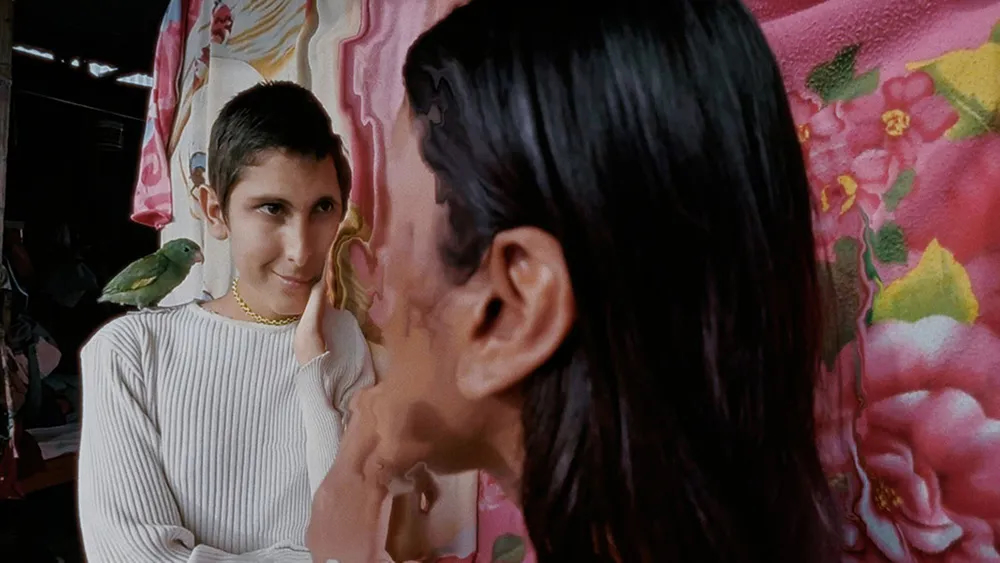Top Ten, 2023
By Erika Balsom
This list was submitted in early October and would certainly be somewhat different if written now. But in the spirit of gesturing to a December issue of Artforum that never was, I have left it unchanged.

1. The Human Surge 3 (Eduardo Williams)
Williams’ second feature reprises the global scope and desultory wandering of his celebrated debut, The Human Surge (2016). He stitches together disparate locations into a queer fabric of disaffection and dreams, using a 360-degree camera and VR headset in ways that wholly transcend gimmickry.
2. Trenque Lauquen (Laura Citarella)
One recognizable strand of twenty-first-century art cinema pairs dilated duration with a barely-there narrative. In this tale of a missing woman, Citarella bucks the trend, delving into the intricacies of storytelling and genre across a running time of 262 minutes.
3. First International Women’s Film Seminar (1973) (Vibeke Løkkeberg) at “Archival Assembly #2,” Arsenal – Institut für Film und Videokunst, Berlin
Fifty years ago, Løkkeberg shot 16-mm footage of the first feminist film festival, in West Berlin. Never finished and long unseen, the rushes were presented this summer—but the soundtrack was still missing. To compensate, attendees of the original event, including filmmaker/seminar organizer Claudia von Alemann, offered live commentary from the audience.
4. The Return of Jean Eustache
Rights issues prevented the circulation of Eustache’s “dirty stories” for years. Finally, the director’s films are back, with an international retrospective and a new book by Philippe Azoury.
5. Bushman (1971) (David Schickele)
This newly restored film about race, migration, and counterculture—one of the most-talked-about titles at this year’s Cinema Ritrovato festival in Bologna—convinced me that there are times when spoiler warnings do have a purpose. Just see it.
6. Do Not Expect Too Much from the End of the World (Radu Jude)
A day in the gig economy, a life in the image economy. Jude’s latest feature is dark, funny, and painfully contemporary.
7. “After the Landscape Theory” at Tokyo Photographic Art Museum
In the late 1960s, a group of Japanese filmmakers and critics posited that images of the built environment reveal traces of how power operates, a notion most famously exemplified by Masao Adachi’s 1969 film A.K.A. Serial Killer. This fascinating exhibition of films, photographs, and documents explores this idea in reverse chronology, moving from the present back to the so-called “season of politics.”
8. Youth (Spring) (Wang Bing) and Mambar Pierrette (Rosine Mbakam)
Two films about the lives of textile workers, each very different yet both committed to realism’s humble power. Mbakam’s fiction debut, starring the Cameroonian director’s seamstress cousin as a version of herself, arrives only two years after her outstanding documentary Delphine’s Prayers (2021). Given the confiscation of Wang’s passport last year, Youth—a film in three parts, of which Spring is the first installment—could turn out to be his last made in China.
9. Orlando: My Political Biography (Paul B. Preciado)
Preciado bends gender and genre in an essayistic adaptation of Virginia Woolf’s modernist picaresque. Has a philosopher ever crossed over into cinema with quite as much pleasure, panache, and invention?
10. The Secret Garden (Nour Ouayda)
Pairing grainy documentary images of the flora of Beirut with a voice-over fable of plants suddenly taking over the city, this experimental short plays with science-fiction tropes to obliquely evoke a political allegory of urban transformation, renewal, and estrangement.
Erika Balsom is a reader in Film Studies at King’s College London and the author of four books, most recently TEN SKIES (Fireflies Press, 2021).
Lead image: The Human Surge 3 | Courtesy Rediance